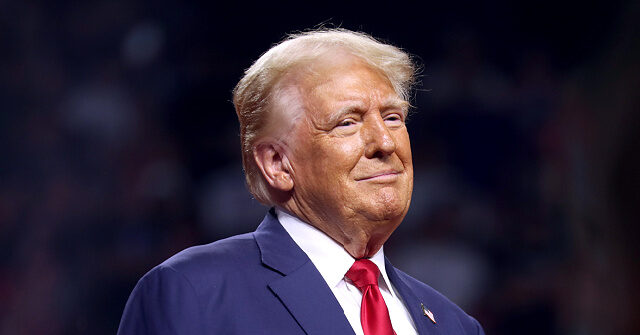On a recent episode of “PBS NewsHour,” New York Times columnist David Brooks offered a candid critique of both the Democratic Party and former President Donald Trump. He voiced the opinion that the Democrats had squandered their opportunity during their time in power to implement meaningful reforms in government. Brooks pointed out that significant issues like immigration and various government services, such as Medicare and veteran services, are hampered by bureaucratic regulations that prevent genuine improvements. He indicated that even among Democrats, there is a growing recognition that something needed to be done to address these inefficiencies, but they failed to act when they had the chance.
Brooks also discussed Donald Trump’s approach to governance, acknowledging that while Trump possesses some sensible instincts, particularly regarding immigration and government reform, he fundamentally lacks a thorough understanding of the complexities of governance. In Brooks’s view, this ignorance could lead to a precarious situation where efforts to enact change may falter due to a lack of experience. Nevertheless, Brooks expressed a certain degree of openness to allowing Trump an opportunity to pursue these reforms, albeit with significant reservations. He stated, “let’s let him try,” suggesting that some of Trump’s instincts, while flawed, could still lead to beneficial outcomes if given a proper chance.
The conversation then shifted to the enigmatic billionaire Elon Musk, with Brooks predicting a rocky outcome for Musk’s relationship with Trump. He anticipated that the fleeting camaraderie they currently enjoy would dissolve within weeks, leading to inevitable conflicts and public disputes. Brooks expressed skepticism about Musk’s long-term influence in a governing capacity, suggesting that while advisors can offer valuable insights, Musk’s presence might not yield the expected positive changes. Acknowledging Musk’s unique perspective as a billionaire and innovator, he remained cautious about Musk’s capability to affect reform in government effectively.
Despite his reservations about Musk’s role, Brooks proposed that there is potential for positive change if Musk can navigate the existing government regulations that hinder the effectiveness of essential services like Medicare and veterans’ support. He claimed that bringing in unconventional figures like Musk could have some merit, but expressed doubt about whether Musk would truly be able to dismantle the bureaucratic barriers. Brooks emphasized that while the aspiration for reform is commendable, the realities of instituting change in government processes are incredibly complex and require well-informed strategies.
In his conclusion, Brooks reiterated that significant government reform is an uphill battle and highlighted the key factor of expertise in navigating such challenges. He pointed out that both Trump and Musk are somewhat out of their depth in terms of understanding the intricacies of governance, suggesting that their lack of political acumen could hinder their potential for effecting real change. Despite recognizing instances where they might have valuable insights, Brooks remained skeptical about their actual ability to bring about substantive reforms, reiterating that practical governance requires a nuanced understanding of the existing systems and regulations.
Ultimately, Brooks’s analysis reflects a broader concern about governance in the current political climate, especially regarding the missed opportunities for reform and the complexities of leadership. He provides a critical examination of both political parties and notable figures, urging a more profound understanding of the intricacies involved in government reform. His cautionary stance invites further discussion on the need for experienced leadership capable of weaving through legislative challenges, highlighting the importance of effective governance in addressing pressing social issues.

